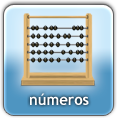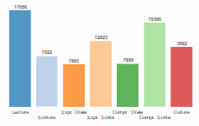| Noticias |
Cram schools
por Raphael
The word 'juku' in Japanese means 'place to learn', and it is a common word in the Japanese language. The most common form of a juku would be what is called in English 'a cram school'; somewhere that students go after they have finished regular school in order to continue studying. The high importance placed on education in Japan is reflected by the great number of cram schools – every city is literally 'crammed' with them – and they are attended by vast numbers of students, all willing to put in the extra hours to do what it takes to get ahead. So why do the Japanese study so hard? A short look at the phenomenon of cram schools will give us an insight into this fascinating element of Japanese culture.
As with most countries, education in Japan was originally a privilege enjoyed only by the upper classes. However, the arts of reading, writing and arithmetic gradually became more common place, until the Edo period, when two centuries of peace allowed industry to flourish. This meant that a good head for numbers and the ability to record data became important and learning spread fast. During this period Japan had one of the highest literacy rates in the world. In the Meiji period, which began in 1868, Japan opened its doors to the West and replaced its education system with one that was more akin to those in Europe and America. The pinnacle of that system was the university. The university remains the single most important aspect of a student's life to this day, and it is said that the university a student goes to will have a great effect on their future career. This was probably an idea that became prominent after World War II, when Japan was growing rapidly. Companies looked for future employees in the universities, and some institutions were seen to be consistently better than others. This ranking still exists today, and the pressure to get into a top ranked university is intense. Hence the masses of students who choose to attend cram schools.
The most common type of cram school is one that prepares students for university entrance exams, although there are cram schools dedicated to the entrance exams for high school, and even primary school! It is estimated that 40% of children in the last year of primary school attend cram schools, and over 65% of students in the last year of high school. The extra study is not just for nerds!
It's often hard for people from Western cultures to understand why the Japanese study quite as hard as they do. The routine of finishing school, going to cram school for three hours, only to come home and stay up past midnight doing homework is not one that would appeal to many. But the Japanese society is one in which it is very hard to get ahead. There is a huge population in Japan, and those who don't make the grade get left behind. In fact, an average of only three in ten gain admission to the university of their choice, and in the really top universities the odds are even higher. In Japanese society the university that you go to will almost certainly have a profound impact on your future career, and ultimately your happiness.
There have been some criticisms of cram schools that they are too exam focused. It is true that the main aim of attending a cram school is to pass the entrance exam to your chosen school or university, but some argue that it is more valuable to teach students how to learn, and to become well rounded individuals, than just how to do an exam. Some jukus are moving the emphasis away from exams and encouraging the students to ask more questions, to work things out for themselves and even to clean their own classrooms, helping them to gain life skills that will be valuable long after university entrance exams have been forgotten.
Jukus though are not just for students hoping to get into university. There are some adults in Japan who, either through misfortune, war or poverty, were never able to receive a formal education. Being illiterate in a country where almost everybody can read and write can be a hard thing. Some charity run schools are addressing this problem, helping adults who never had the chance to learn to read or write how to do so. For the teachers the results are just as satisfying as seeing a bright student get into the university of their choice.
Cram schools are a part of life in Japan. While they are gradually becoming more modern and holistic in their approach, their main focus remains on exam results. As the population slowly decreases the need for the sheer numbers of cram schools there once were is not the same, but the percentage of students attending them remains high, all of them hoping to get the best results which will take them to the best university. If you want to succeed in Japanese society, a cram school is the place to be!
| Aucun commentaire |


















